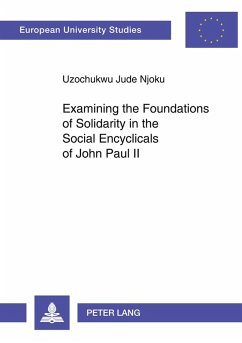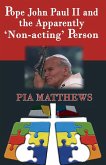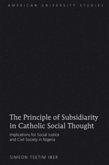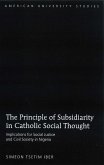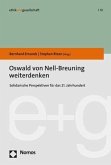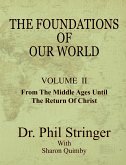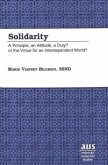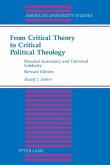This work elucidates the theological and philosophical backgrounds of the ethics of solidarity in official Catholic social thinking, with a focus on John Paul II's social encyclicals. His concept of solidarity springs from a complex combination of history, tradition and philosophy. This study not only illustrates these backgrounds, but also the basic hermeneutical conditions for a reappraisal of the concept of solidarity in Christian social ethics and in contemporary debates. While recognising the fluidity, which characterises the articulation of this concept, it underscores an orientation to a particular version of personalism as being central to the pope's understanding of solidarity. With insights from Liberation theology, other thinkers like Enrique Dussel and Paul Ricoeur and the social history of Africa, this work attempts to criticise and enrich the personalist approach of John Paul II with a more structural methodology. It argues for an appropriation of Paul Ricoeur's notion of creative tension between person and social structures for a balanced understanding of solidarity and social change.

